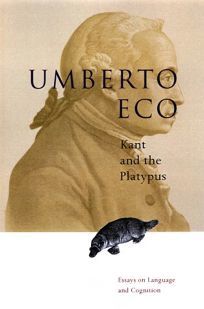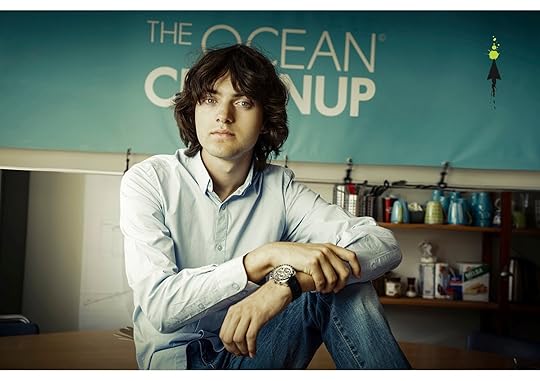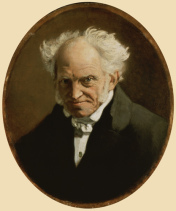Richard Harris's Blog, page 9
November 24, 2017
From $411 to 100K in a Heartbeat
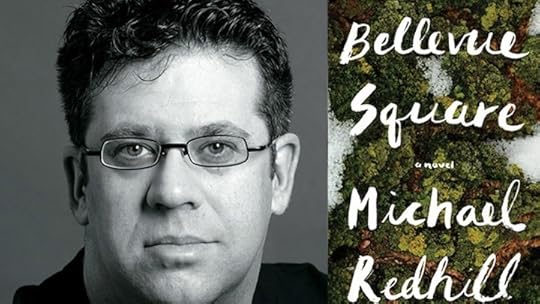
The title of this article from the Toronto Star says it all: “Michael Redhill had $411 left in bank account before Giller Prize cheque.”
So, just to clear up this myth once and for all, writers are, for the most part, not wealthy individuals. My congratulations to Mr. Redhill, and I will report back once I’ve read his Giller Prize-winning novel, Bellevue Square.
Two of my favourite quotes from the above piece:
“Visa is very happy, I’m sure, that I won this prize.”
“I didn’t ever get a job at Starbucks, but I thought about it.”
In the meantime, consider the following article, “Everyone’s a winner,” from The Globe and Mail, which starts:
“Few countries honour their authors as exhaustively as Canada. But, with another nerve-racking awards season upon us, Mark Medley wonders: Does the infatuation help or hurt hopeful writers?”


A Platypus and a Philosopher Walk into a Bar…
Don’t ask me what the title of this book means. I think (stress think) it has something to do with our limited use of language to describe the world around us. The writer, none other than Umberto Eco, famed author of , is way too smart for his own good. And mine.
He starts with the story of Marco Polo, and how another famed Italian ran into a “unicorn” during The Travels in what is today’s Indonesia. In point of fact, however, it was a Javan rhinoceros. It was big. It had a horn. It kind of resembled a horse. Therefore, it was a unicorn. Eco then hypothesizes what Signore Polo would have said had he made it to Australia and run into a platypus because, as often seems to be the case with animals in Oz, they defy description based on “old-world” foundations.
Not long ago, I heard about Eco’s Kant and the Platypus: Essays on Language and Cognition, and quickly grew excited. I love languages, the study of linguistics, and even (sometimes) have (limited) cognition!
About one sentence into this sizeable book, I knew I was in way above my pay grade. I finished the first chapter, skimmed the second, and then threw in the towel.
If you’re a part of the publishing industry, especially in fiction, then you know how little time and space an author has to “sell” you on a project. If you’re a reader, you also know that you have a threshold. The difference between the two usually comes down to how long/far this breaking point is reached.
For agents, editors and publishers, you might get anywhere from a single paragraph to 10 or 20 pages. If you’re a grant organization, you usually offer anywhere between 10 and 30 pages for the author to shine. As a reader, I often go with the “100-page rule.” If you fail to sell me on your writing and/or story by the century mark, chances are I’m going to drop you like a bad, oversized suit. Life is too short; I’m busy; I’ve got other things on my Tsundonku shelf. The reasons are many and varied.
In any event, if you’re a glutton for scholarly linguistics then by all means pick up Eco’s book. God speed, says I! However, if you’re simply interested in learning more about Eco and how to become an “antischolar,” check out this excellent piece from Brainpickings: An inventory of the meaningful life titled “Umberto Eco’s Antilibrary: Why Unread Books Are More Valuable to Our Lives than Read Ones.”


November 22, 2017
National Housing Day
Yes, it seems there is a day for everything now. National Typewriter Awareness Day! International Day of the Three-toed Sloth! (Obviously because they usually have two toes this is a BIG! deal, especially in Central and South America.)
But today is actually really, really, really important. And that’s because shelter ranks right up there with freshwater and food in the hierarchy of important things in our lives.
If you want to learn more about the day and its initiative, click here to check out “What is National Housing Day? Where did it originate? What happens on that day?“


November 21, 2017
Rid the Oceans of Plastic (But First Tear Down the Walls of Apathy & Conformity)
Like Mr. Burns, I love go-getters. Perhaps not ones like H. Simpson, but I enjoy doing business with these kind of men and womenfolk.
Take Boyan Slat, for example. He’s Dutch. He’s 23 years old. Since he was 16, his life mission has been to rid the world’s oceans of plastic. His project is called The Ocean Cleanup.
Ha ha. Yeah, right. When Dutch ovens fly! the eternal pessimist says. You pull that one off, kid, and I’ve got a bridge in Brooklyn for sale. Ha ha ha…
Kishore Mahbubani, Dean of the Lee Kuan Yew School of Public Policy at the National University of Singapore, didn’t have the same reaction when he met the Boy Wonder at the annual Davos meetings of the World Economic Forum (WEF) last year. Rather, Mr. Mahbubani had his knickers blown off. He then wrote about this experience in The Straits Times in an article titled “Youth here lack idealism: A meeting with a young Dutchman spurs the writer to reflect on the deficit of this quality among Singapore youth.”
Read the article for inspiration, to lament the youth of Singapore, or simply to learn more about how you even begin cleaning up the millions upon millions of tons of plastic that are currently polluting the world’s oceans. Or read it to understand what Randy Pausch meant when he said “tear down the brick walls.”
Go get ’em, Boy Wonder. You’ve got the support of the world behind you.


November 20, 2017
The Science of Stress

Psychologist Kelly McGonigal has some things she wants to tell you about stress – things that you, like me, have probably misunderstood up until now. Per the introduction for the TED Talk by Dr. McGonigal:
Stress. It makes your heart pound, your breathing quicken and your forehead sweat. But while stress has been made into a public health enemy, new research suggests that stress may only be bad for you if you believe that to be the case. Psychologist Kelly McGonigal urges us to see stress as a positive, and introduces us to an unsung mechanism for stress reduction: reaching out to others.
There were two things she said in this talk which resonated with me:
“When you choose to view your stress response as helpful, you create the biology of courage.”
“Chasing meaning is better for your health than trying to avoid discomfort.”
Take 10 minutes out of your day and watch this TED Talk when you have a chance. She will help reshape the way you view stress from a scientific point of view. You will thank me later for linking to this video. Your future self will thank you when you don’t drop dead from a cardiovascular-related condition a year from now. And I have already thanked Dr. Andrea Dinardo for introducing me to this video.


November 19, 2017
Quote of the Day
“The effect of music is so very much more powerful and penetrating than is that of the other arts, for these others speak only of the shadow, but music of the essence.”
— Arthur Schopenhauer (1788–1860)
Or, to put it a little more bluntly like Friedrich Nietzsche did, “Without music life would be a mistake.”
I’d like to say I love Schopenhauer’s quote so much I bought the company, but the truth is much more prosaic: I merely included it in A Father’s Son.
Schopenhauer was a titan of philosophy, probably best remembered today for his work The World as Will and Representation. Although not as commonly known as other big names like Plato, Aristotle, and Descartes, for example, here are a few (relatively unknown) people he had a significant impact on with their own work: Joseph Campbell, Albert Einstein, Friedrich Nietzsche, Leo Tolstoy.
Yeah, I guess Schopenhauer was sort of important in the grand scheme of things.
Anyway, the above quote comes from a longer segment that I’m including here because (1) I agree with it; and (2) Schopenhauer explains it better than I ever could.
“Music…stands quite apart from all the [other arts]. In it we do not recognize the copy, the repetition, of any Idea of the inner nature of the world. Yet it is such a great and exceedingly fine art, its effect on man’s innermost nature is so powerful, and it is so completely and profoundly understood by him in his innermost being as an entirely universal language, whose distinctness surpasses even that of the world of perception itself, that in it we certainly have to look for more than that exercitium arithmeticae occultum nescientis se numerare animi [“an unconscious exercise in arithmetic in which the mind does not know it is counting”] which Leibniz took it to be…We must attribute to music a far more serious and profound significance that refers to the innermost being of the world and of our own self…
“Music is as immediate an objectification and copy of the whole will as the world itself is, indeed as the Ideas are, the multiplied phenomenon of which constitutes the world of individual things. Therefore music is by no means like the other arts, namely a copy of the Ideas, but a copy of the will itself, the objectivity of which are the Ideas. For this reason the effect of music is so very much more powerful and penetrating than is that of the other arts, for these others speak only of the shadow, but music of the essence…
“The inexpressible depth of all music, by virtue of which it floats past us as a paradise quite familiar and yet eternally remote, and is so easy to understand and yet so inexplicable, is due to the fact that it reproduces all the emotions of our innermost being, but entirely without reality and remote from its pain. In the same way, the seriousness essential to it and wholly excluding the ludicrous from its direct and peculiar province is to be explained from the fact that its object is not the representation, in regard to which deception and ridiculousness alone are possible, but that this object is directly the will; and this is essentially the most serious of all things, as being that on which all depends.”


Grit (And Books That Serve As Salvation)

“I don’t think you can be an optimist until you’ve survived a terrible experience,” writes Kait Heacock , author of the short story collection Siblings and Other Disappointments (great title!), in a piece for The Millions titled “Tom Robbins Was My Spiritual Advisor.” It’s a powerful statement, not least because it seems counterintuitive. But here’s the thing: She’s bang on the money. Like, bull’s-eye on the life o’ metre scale.
In fact, she goes on to add,
“You can’t believe in good in the future unless you’ve seen darkness in your past. Otherwise, you’re nervous and fretful as you look over your shoulder for the bad thing coming. Growing up, I was a casual pessimist, more of a complainer than anything. I expected the worst, occasionally experienced a slight variation of it: a cheating boyfriend, my grandparents’ deaths. I don’t think I was an optimist until I came to New York. Until I learned that I could make it out the other side of tragedy. Maybe the grittiest thing I could do was admit my unhappiness and take steps to change it.”
If you read Ms. Heacock’s piece, you’ll notice she has a bit of a fascination/fetish for “grit.” No, not the grits you eat, the grit you earn by surviving ****storms, curious incidents in the middle of the night, and other assorted events that give you the ability to don invisible body armour and say Go fu*$ yourself! to the world when you know you’re right and the rest of the world is wrong. Or perhaps you’re simply tired of being unhappy, tired of being tired, and wanting to make a change, no matter how slight it may be.
For this wide-eyed young lady from the Pacific Northwest, the plan was to move to New York City, become a writer, and bathe in the many monies and sunshiny successes which would soon roll her way like waves lapping so naturally at a beach.
Well, as it turns out, she nailed the first part (the move was successful) and then got thrown a monkey wrench two months later when her brother overdosed and died.
Sometime after his death, long before I landed a dream publishing job and was vacillating between staying and leaving [New York], I became obsessed with the idea of “grit.” It was a buzzword in education, and the researcher who popularized the term, Angela Duckworth, began appearing on NPR’s homepage. NPR defined grit as the “ability to persevere when times get tough, or to delay gratification in pursuit of a goal.” The times were tough; the goal was to be a writer. Grit, I convinced myself, was all I needed to survive New York, survive my brother’s death, and survive my life.
Kait Heacock had – and appears to still have – grit. What she no longer has is an address in the City. She’s moved back to the PNW, and as she claims, Tom Robbins deserves part of the credit for that. And that’s because he and his novel Another Roadside Attraction, described by his publisher as a “stunningly original seriocomic thriller [that] is fully capable of simultaneously eating a literary hot dog and eroding the borders of the mind,” served as her spiritual advisor at a particularly muddied juncture in her life.
As with most readers, there have been a lot of books that served the purpose of spiritual advisor/salvation over the course of my own life. Off the top of my head, some of these include The Alexandria Quartet, Barney’s Version, Bel Canto, A Confederacy of Dunces, The End of the Affair, The English Patient, Fear and Loathing in Las Vegas, Ghostwritten, The Histories, The Line of Beauty, Long Walk to Freedom, The Man Who Mistook His Wife for a Hat, Man’s Search for Meaning, the Pensées, The Prophet, A Suitable Boy, War and Peace, and The Wind-up Bird Chronicle
This begs the question: Which book(s) did you read in your time of need (for a spiritual advisor/salvation)?


November 17, 2017
“Sonnet to Middle Age” by Paul F. Lenzi

Give credit where credit is due, says I. Paul Lenzi over at Poesy plus Polemics: Words of Wisdom, Worry and Whimsy has a beautifully written sonnet (yes, sonnets are still cool) that I had to share.
The mortuaries for young hopes and dreams
Are built in middle age when first we find
Real obstacles impede the flow of streams
We mapped for navigation in our mind
But callow yearnings for romantic end
Should not be coffin-laid before their time
Such wonder is their power to transcend
The tortured course that challenges our prime
Experience yields choices grown more sage
Less likely to abjure a changing line
We modify our prospects as we age
Through crisis, chance or canny redesign
What matters after all is done and tied
Is did we find the bliss beneath the pride
“Sonnet to Middle Age,” Paul F. Lenzi


Brave New Mama (Poems)
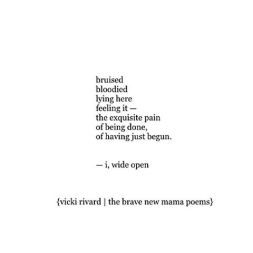
Congratulations to my friend Vicki Rivard (@bravenewmama), who has just published her first book of poetry! As you can see from the above poem, she’s got a beautiful way of expressing the world around her. I’ll let her Facebook post speak for itself, but Brave New Mama has got “Buy me for Christmas!” written all over it…
To the mamas (past, present & future) & all those who love them: brave new mama – the little book that love built – is now available to PRE-ORDER! || The cost is $25 CDN (in Canada), $25 USD (in USA) & $30 CDN (everywhere else). This pricing includes: a signed book, if desired (please make sure to include whom the book is going to, so I can personalize it properly) & all taxes/shipping costs. || Books will be shipped the week of December 1st & arrive 5-10 days later, in plenty of time for Christmas wrapping & gifting. || Payment can easily be made via e-transfer or PayPal, using the address hello@vickirivard.com || Want one?! Yayyy!! Send me an email (with your address) & let me know. || Thank you, thank you, thank you, from the bottom of my grateful heart.
The Nerdy Lion

Although I am constantly told I am the funniest person people have ever met, there’s a new cat in town – and he’s funny. A distant second, to be sure, but funny.
I stumbled on The Nerdy Lion: Lions can wear glasses too through a post titled “Why no one is reading your blog – Part 1.” It was pretty damn funny. I laughed and laughed. Why? Because it was funny in the same way that tricking kids is funny:
One thing kids like is to be tricked. For instance, I was going to take my nephew to Disneyland, but instead I drove him to an old burned-out warehouse. ‘Oh no,’ I said, ‘Disneyland burned down.’ He cried and cried, but I think that deep down he thought it was a pretty good joke. I started to drive over to the real Disneyland, but it was getting pretty late.
Anyway, of the many and varied things Nerdy Lion writes about volubly, one subject he has a particularly good grasp on is anxiety & depression. As someone who has “conquered” anxiety, he’s got some useful tips and insight. And even if that’s not what you’re interested in reading about, still check out his site and explore. There are lots of great posts there for your reading enjoyment.



